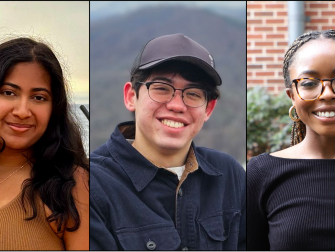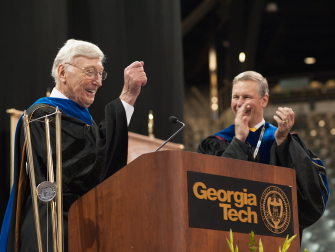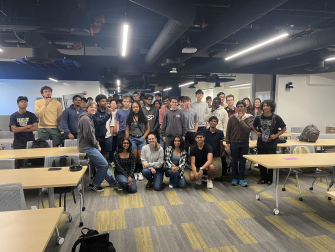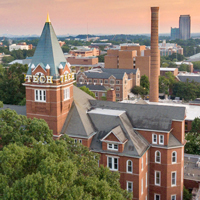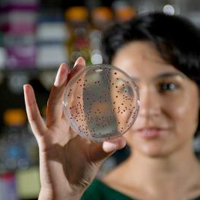College of Sciences

The College of Sciences at Georgia Tech cultivates curiosity, encourages exploration, and fosters innovation to develop leaders and scientific solutions for a better world. Discover more.
Experts In The News
DNA samples from one of the world’s largest and oldest plants — a quaking aspen tree (Populus tremuloides) in Utah called Pando — have helped researchers to determine its age and revealed clues about its evolutionary history.
“It’s kind of shocking to me that there hasn’t been a lot of genetic interest in Pando already, given how cool it is,” says study co-author William Ratcliff, an associate professor in the School of Biological Sciences.
By inputting Pando’s genetic data into a theoretical model that plots an organism’s evolutionary lineage, the researchers estimated Pando’s age. They put this at between 16,000 and 80,000 years. “It makes the Roman Empire seem like just a young, recent thing,” says Ratcliff.
(This also appeared at Newsweek and NewScientist.)
Nature November 1, 2024Last week, Michael Wong and Robert Hazen of the Carnegie Institution for Science welcomed a diverse group of nearly 100 scientists, from microbiology to neuroscience, for a workshop on how complexity emerges and evolves. It was also a referendum on their audacious proposal, which, Wong said in a talk, is “an explanatory framework for the evolution of physical systems writ large, including, but not limited to, biology.”
It’s an appealing idea, says Loren Williams, a professor in the School of Chemistry and Biochemistry who studies the origin of life and attended the workshop. “To me it seems very clear that there is evolution outside of biology.” Take the polypeptide backbone, the chain of molecules that forms the spine of all amino acids, he says. “[Biological] evolution doesn’t touch that, right? It’s the same in everything alive. It always has been. But it’s a product of evolution, I’m convinced.” It’s just that the evolution happened before life began, he says. And so when Hazen and his co-authors proposed their overarching theory, he says, “that just resonated with me.”
Science November 1, 2024Hurricane Helene hit parts of inland North Carolina and caused flooding and damage in parts of Georgia, both areas not used to these sorts of conditions. Annalisa Bracco, a professor in the School of Earth and Atmospheric Sciences, said climate change is causing extreme weather conditions in places unfamiliar with these disasters.
“In general, [the increase in natural disasters] is telling us that the climate is indeed changing and that climate models have been overall correct in predicting conditions that will exacerbate extreme events, and we are seeing the impacts of that,” Bracco said.
“Temperatures are getting higher and extremes are getting more common: more droughts, more heavy rains, more forest fires, more heat waves, increased storminess, also more strong cold spells in places not used to getting them as strong.”
The Southerner October 29, 2024
